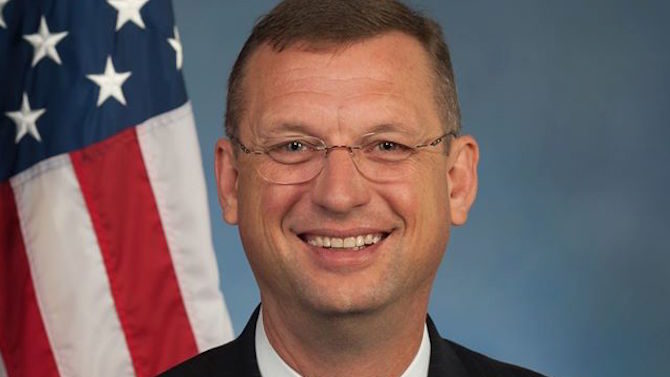In the end, the political insurgency that supposedly would sweep incumbents out of office in last week’s primaries turned out not to be much of an insurgency. It seems that a majority of the state’s voters are OK with the people who are currently representing them in Congress or the General Assembly.
There was a slate of candidates, many of them tea party activists, who were fired up by Donald Trump’s success as an outsider running for president and hoped to duplicate that at the local level by challenging incumbents in their own primaries. These outsiders were spitting mad at congressmen who voted for John Boehner as speaker, or legislators who voted for the motor fuel excise tax increase. That anger, however, never translated into any kind of political wave.
Three congressmen from North Georgia districts that are among the most conservative in the country faced down this primary opposition and will go back to Washington. Rep. Barry Loudermilk (R-Cassville) got 60 percent of the vote against a field of four opponents. Rep. Doug Collins (R-Gainesville) also had four opponents, one of them a former congressman, and did slightly better than Loudermilk by attracting 61 percent support. Rep. Tom Graves (R-Ranger) outperformed them both by getting nearly 76 percent of the vote against two opponents.
It was a similar situation in the legislative races, where influential lawmakers who hadn’t had opposition in a long time had to get out there and actually knock on doors asking constituents for their votes. From House Speaker David Ralston on down, nearly all the incumbents who were party leaders or committee chairmen won their primaries by comfortable margins and can look forward to reelection in November with little or no Democratic opposition.
For the second election in a row, Ralston fended off a challenge from high school wrestling coach Sam Snider by about the same two-to-one margin.
Both of the majority leaders won their respective primaries by lopsided margins: House Majority Leader Jon Burns (R-Newington) defeated corrections officer Daniel Almond and Senate Majority Leader Bill Cowsert (R-Athens) won against Patricia Daugherty.
Rep. Terry England (R-Auburn) campaigned hard against his first opponent in 10 years and it paid off with 90 percent of the vote against Lucretia Hughes.
Despite the embarrassment of a DUI arrest in the middle of his campaign, Rep. Tom Taylor (R-Dunwoody) piled up almost 73 percent of the vote to rout Tom Owens, a DeKalb County political activist.
Five Republican senators in North Georgia survived primary challenges with relative ease: Sen. Jeff Mullis (R-Chickamauga), Sen. Charlie Bethel (R-Dalton), Sen. John Wilkinson (R-Toccoa), Sen. Frank Ginn (R-Danielsville) and Sen. Steve Gooch (R-Dahlonega).
Sen. Brandon Beach (R-Alpharetta) may have had the most impressive result of all. He was running against a wealthy investor, Aaron Barlow, who had the financial means to put at least $317,000 of his own money into the campaign. Beach is also a major supporter of MARTA expansion, an issue that has been deadly for Republican politicians in the northern suburbs.
Beach still wound up with 58 percent of the vote and now has an endorsement to go back to the capitol and keep pushing for more rail lines.
You have to go down to the county commission level to find a prominent incumbent who didn’t finish first. That would be Cobb County, where Commission Chairman Tim Lee was finally punished by the voters for funneling nearly $400 million in public funds to the Atlanta Braves for their new stadium. Lee finished a weak second in his primary race and may not survive the runoff.
It could well be true that the Republican Party nationally is being fractured by Trump’s insurgent candidacy. Here in Georgia, however, there doesn’t seem to be nearly as much dissatisfaction — and a lot of incumbents are happy about that.
Like what you just read? Support Flagpole by making a donation today. Every dollar you give helps fund our ongoing mission to provide Athens with quality, independent journalism.









